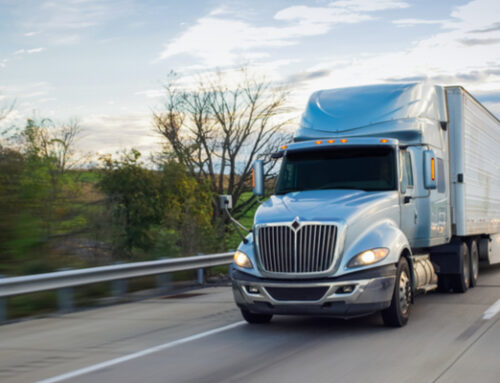Rideshare and Uber/Lyft Accident Claims
Rideshare accidents involving Uber, Lyft, and other transportation network companies create complex insurance and liability issues that differ significantly from traditional car accident claims. Understanding how rideshare accident claims work helps passengers, drivers, and other motorists navigate the unique coverage challenges and procedural requirements associated with these cases.
South Texas’s growing rideshare usage, particularly in cities like San Antonio, is leading to an increasing number of rideshare accidents that require specialized legal expertise to resolve successfully and obtain fair compensation for accident victims.
Rideshare Insurance Coverage Phases
Rideshare drivers operate under different insurance coverage phases depending on their app status and passenger activity at the time accidents occur.
Phase 1 coverage applies when drivers have rideshare apps on but haven’t accepted ride requests, providing limited coverage that supplements drivers’ personal auto insurance.
Phase 2 coverage activates when drivers accept ride requests and travel to pickup locations, providing higher liability limits and comprehensive coverage through rideshare companies.
Phase 3 coverage provides maximum protection when passengers are in vehicles during active rides, with the highest liability limits and full coverage for all parties involved in accidents.
Personal Insurance Gaps
Most personal auto insurance policies exclude coverage for commercial activities, including rideshare driving, creating potential coverage gaps during certain phases of rideshare operations.
Drivers who fail to notify their personal insurers about rideshare activities may face claim denials in the event of an accident, leaving passengers and other motorists without adequate coverage.
Understanding these coverage gaps helps accident victims identify available insurance sources and pursue appropriate claims for compensation.
Uber and Lyft Company Liability
Rideshare companies typically provide substantial liability insurance for accidents occurring during active rides, but independent contractor arrangements may limit their liability for driver negligence.
Company liability may extend beyond insurance coverage when accidents result from negligent driver screening, inadequate vehicle inspections, or app design defects that contribute to accidents.
Driver Screening and Background Checks
Rideshare companies conduct background checks and driver qualification reviews that may create liability when inadequate screening allows dangerous drivers to operate vehicles.
Driver history, including traffic violations, criminal records, and previous accidents, may support claims against rideshare companies for negligent hiring or retention.
Vehicle Inspection Requirements
Rideshare vehicles must meet safety and condition requirements that may create company liability when inadequate inspections allow unsafe vehicles to operate.
Mechanical failures or safety defects that contribute to accidents may support claims against rideshare companies for failing to maintain proper vehicle standards.
App-Related Distraction
Rideshare apps require driver interaction for accepting rides, navigation, and passenger communication that may create dangerous distractions leading to accidents.
App design features that encourage unsafe driving behaviors or inadequate distraction warnings may support liability claims against technology companies.
Passenger Rights and Protections
Rideshare passengers typically receive comprehensive protection through Phase 3 insurance coverage that includes medical expenses, lost wages, and pain and suffering compensation.
Passengers injured in rideshare accidents may have claims against both rideshare companies’ insurance and other drivers’ insurance when multiple parties share fault.
Third-Party Motorist Claims
Drivers and passengers in other vehicles involved in rideshare accidents can pursue claims against rideshare drivers and companies’ insurance coverage for their injuries and damages.
These third-party claims may involve complex coverage determinations based on the rideshare driver’s app status and activity at the time of accidents.
Uninsured Motorist Considerations
Rideshare companies typically provide uninsured motorist coverage that protects passengers when accidents involve uninsured drivers or hit-and-run scenarios.
This coverage supplements passengers’ personal UM coverage and provides additional protection when other parties lack adequate insurance.
Multiple Insurance Coordination
Rideshare accidents often involve multiple insurance policies that must be coordinated to ensure coverage, including personal auto insurance, rideshare company insurance, and insurance from other parties.
Understanding how these policies interact and which coverage is primary helps maximize available benefits while avoiding disputes over coverage.
Driver vs. Passenger Claims
Rideshare drivers and passengers may have different coverage options and claim procedures available, depending on their status and the specific circumstances of the accident.
Drivers may face more complex coverage issues due to potential gaps between personal and commercial insurance policies.
Investigation Challenges
Rideshare accidents require investigation of app data, driver status, and company policies that may not be readily available without legal procedures to obtain evidence.
GPS data, ride histories, and communication records may provide crucial evidence for establishing accident causation and determining appropriate coverage.
Settlement Negotiation Differences
Rideshare company insurers may have different claim handling procedures and settlement practices than traditional auto insurers, requiring adapted negotiation strategies.
Large corporate insurers often have more resources but may also have more systematic approaches to claim evaluation and settlement.
Surge Pricing and Driver Behavior
Surge pricing periods may create incentives for aggressive driving or longer work hours that increase accident risks and potentially affect liability determinations.
Airport and Special Event Coverage
Rideshare operations at airports, special events, and other restricted areas may involve additional insurance requirements or coverage considerations.
Driver Fatigue Issues
Long driving hours during peak demand periods can lead to driver fatigue, which contributes to accidents and supports negligence claims against both drivers and companies.
Vehicle Maintenance Responsibilities
Determining responsibility for vehicle maintenance between drivers and rideshare companies may affect liability when mechanical failures contribute to accidents.
Regulatory Compliance
Rideshare operations must comply with various state and local regulations that may affect insurance requirements and liability exposure.
Data Privacy Considerations
Accessing rideshare company data for accident investigation may involve privacy considerations and require specific legal procedures to obtain relevant information.
Class Action Considerations
Some rideshare accident issues may affect multiple victims and warrant class action treatment when company policies or practices create systematic problems.
Technology Evolution
Rapidly evolving rideshare technology, including autonomous vehicle testing and new app features, may create novel liability issues requiring updated legal approaches.
Future Trends
Rideshare accident law continues evolving as courts address new technology issues and legislatures consider regulatory frameworks for transportation network companies.
Rideshare accidents require specialized knowledge of complex insurance arrangements and emerging legal issues to ensure accident victims receive fair compensation from all available sources.
Understanding rideshare accident claims helps South Texas victims navigate the unique challenges these cases present while maximizing recovery from multiple insurance sources and potentially liable parties in this rapidly evolving area of transportation law.



[…] post Rideshare and Uber/Lyft Accident Claims appeared first on J.A. Davis & Associates […]